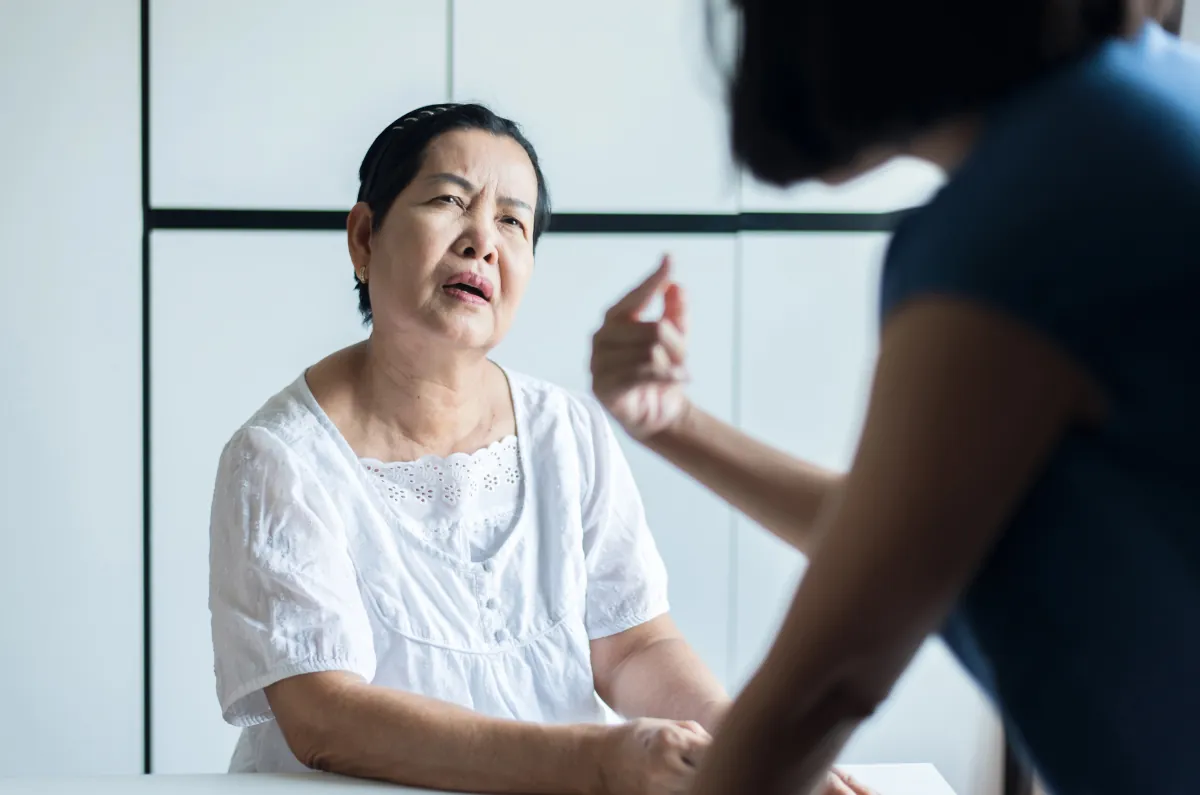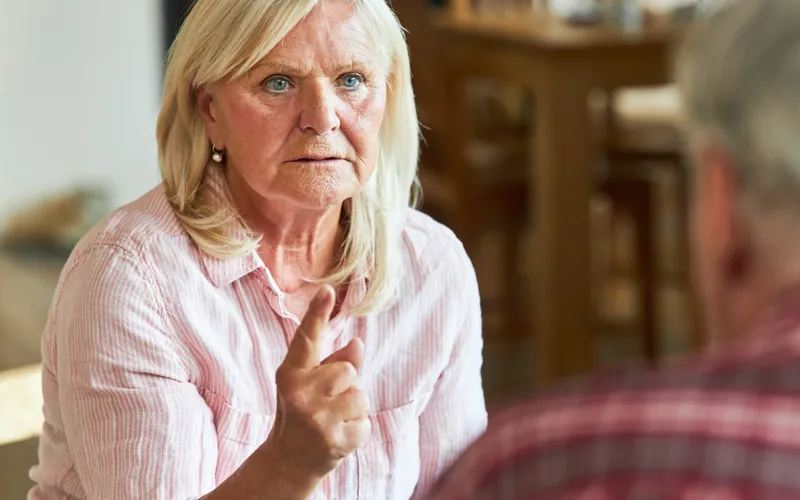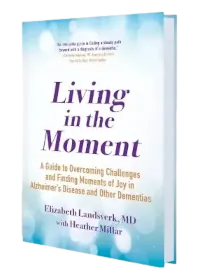Sundowning
People with dementia commonly develop agitation. It can be restlessness, following a caregiver around, anxious if that person is not in sight. It can be quick anger, or sobbing.
Symptoms of paranoia, hallucinations and delusions are known as psychosis.
Delirium is a type of psychosis. It comes on abruptly with a change in the level of consciousness (either too sedated or agitated) and lack of attention, that waxes and wanes. Elders and people with Alzheimer’s or other dementia are more at risk of delirium from infection, medications, withdrawal of medications (looking at you Ativan and Xanax), injury (falls, head injury), heart attacks or strokes…. even pain and constipation can result in delirium in frail elders.
What is sundowning?
Sundowning is a type of cyclical delirium that often starts in the afternoon to evening and can lead an elder to think they are back living in their parents home, and need to go off to school, or they need to pick up their (now 50 year old) children at grade school. Some medications make it more likely for an elder to have these symptoms. Any use of Xanax, Ativan, Klonopin (Benzodiazepines), Keppra (Levitriciam) a anti-seizure medication, Lomotil, or anticholinergic medications such as Tylenol PM (the Benadryl… not the Tylenol) Zertec, bladder pills like Ditropan, Detrol or Santura. A, all anticholinergic medications can make elders more agitated or psychotic. Choline is what the nerve cells use to talk to each other.

People with Parkinson’s have a challenge. Sinemet, increases dopamine to improve movement. However, too much dopamine can lead to psychosis, a side effect of dopamine. All elders with Parkinson’s disease should be on Donepezil or Exelon to improve cholinergic function of the brain. Anti-psychotics can decrease dopamine and decrease hallucinations and delusions… but particularly Haldol, Risperdal/ Risperidone and Zyprexa/Olanzapine severely worsen function.
The best is to minimize both categories of medications and use only the Parkinson’s meds needed to move fairly well…. not perfectly. Then use something like Clozapine or Geodon that do not affect function as much for serious psychosis.

Joan, every night, thought her husband of 40 years was a stranger and harangued him out of the house, he slept in the car. Sometimes, an elder can be kept busy and reassured that there was someone else picking up the children, or that they were safe and keep them engaged with a walk, playing with their dog, making a meal.
However, that does not always work. Removing (tapering slowly for any benzos) the offending medication can help. Donepezil/Aricept or Exelon can help diminish these, but is not an emergency fix. Sometimes when an elder is at risk of harm to themselves, or to others – as in the case of pushing her husband out of the house nightly, then need anti-psychotic medications to quiet the symptoms.
This is a controversial topic and it is always best to avoid psych meds. We have worked with thousands of elders with sundowning.
Look for a memory clinic at a medical school. Mt Sinai in NYC, UCSF, UCSD in California are particularly good.
From TeleHealth with the doctor (in California) to our DLG Community for discussion forums, zoom support groups and a Q&A with the Geriatrician; we are here for you.
DLG Education provides online training modules with CEUs for RCFE, CMs, SW, RNs, fiduciaries and all who care for elders and people with dementia. Written by a Geriatrician, with expertise in dementia challenges, we address the messy tough care areas; Agitation, Parkinson’s and Lewy Body Dementia, Preventing Falls, Care of the Dependent Adult and others.
Dr Liz is on call 24/7 and medical director of a memory care community. We know what works.

 Living in the Moment: Overcoming Challenges and Finding Moments of Joy in Alzheimer’s and Other Dementias written by a geriatrician, with expertise in dementia, agitation and the complications of overmedication, financial elder abuse, diagnosis and determining capacity as well as providing as independent a living situation as possible.
Living in the Moment: Overcoming Challenges and Finding Moments of Joy in Alzheimer’s and Other Dementias written by a geriatrician, with expertise in dementia, agitation and the complications of overmedication, financial elder abuse, diagnosis and determining capacity as well as providing as independent a living situation as possible.
Living in the Moment addresses the difficult issues that most other dementia resources avoid.
We are here for you.

